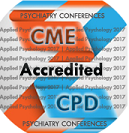
Flavia Maria Margaritelli
Observatory Health and Safety, Italy
Title: Resilience, communities and life skills: The experiment of the resilience festival towards a model of integrated training, research and social innovation to combat the economic crisis
Biography
Biography: Flavia Maria Margaritelli
Abstract
Background: In the crisis framework faced by many areas of Italy and Europe, the main resource available for revitalizing the socio-economic fabric is represented by human capital. Life skills, in the suffering contexts of the structural crisis, as many authors show, are the fundamental skills to implement for troubleshooting. In a systemic, interactionism and ecological perspective of the study of resilience, this paper describes the possibility of stimulating life and soft skills in a deep industrial crisis area, characterized by unemployment and population decline, in which the negative bias limits the population vision.
Objective: The Resilience Festival (years 2015 and 2016), an experiment developed by “ProPositivo (propositional)” association in Marghine, a West-Center region of Sardinia, has favored projects that are stimulating institutions and citizens in the research and formulation of new resilient solutions about the production, consumption and sociability side.
Methods: The Festival has allowed the emergence of life skills among the participants such as creativity-Innovation, team work, decision making, conflict management, change ability, stress tolerance, goal setting. There were observed, through a multidisciplinary methodological approach based on positive psychology, the economy of sharing, the direct participation of artistsand researchers, the use of experiential learning techniques (ethnographic tourism, workshops, coach surfing, emotional and physical theater), the skills in the collective creation of an itinerant artistic theatrical performance, attended by the population and meticulously documented in digital format.
Conclusions: The social experiment of the Resilience Festival is an ongoing process that starts with interesting results, and tends to lay the foundation, in 2017, for further applied research through qualitative and quantitative insights that can allow a careful evaluation of the experience.

